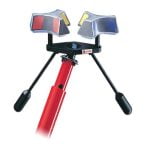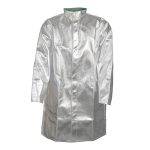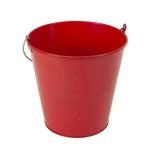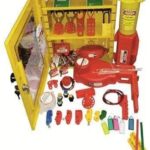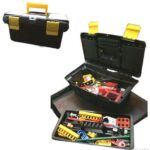Your list is empty, add products to the list to send a request
How Do I Choose a Smoke Detector? A Complete Fire Safety Buying Guide

24
May
Selecting the right smoke detector can be the difference between life and death during a fire. With so many options available, it’s important to understand the different types, features, and placement recommendations before making a decision.
This guide will help you determine which smoke detector is right for your home or business, how many you need, and which features to prioritize for maximum protection.
Why Choosing the Right Smoke Detector Matters
Smoke detectors serve as your home’s early warning system. The right model detects smoke quickly and alerts occupants in time to escape safely. Poor-quality or outdated models can delay detection or give false alarms.
According to the National Fire Protection Association (NFPA), having properly installed and maintained smoke detectors cuts the risk of dying in a home fire by half.
Types of Smoke Detectors Explained
Understanding the different types of smoke detectors is essential when making a choice.
- Ionization Smoke Detectors: Detect fast-burning, flaming fires. They respond quickly but are prone to false alarms from cooking.
- Addressable Smoke Detectors: Ideal for commercial buildings. Each unit can be identified and monitored by a central system. A reliable example is the Ravel Conventional Smoke Detector.
- Photoelectric Smoke Detectors: Better at detecting slow, smoldering fires—common with upholstery or electrical issues. Less prone to false alarms.
How to Decide Which Smoke Detector to Buy
When selecting a smoke detector, consider the following factors:
1. Home Size and Layout
- For a small apartment, battery-powered or smart detectors may suffice.
- Larger homes benefit from interconnected systems.
2. Sensitivity Requirements
- Homes with smokers or pets may need detectors less prone to false alarms.
3. Power Source
- Choose between battery-operated, hardwired, or sealed 10-year lithium battery models.
- Commercial spaces typically require hardwired or addressable units.
Smoke Detector Placement: Best Practices
To maximize effectiveness, follow these placement guidelines:
- Install one smoke detector per bedroom.
- Place one outside each sleeping area.
- Install on every level, including the basement.
- Mount on ceilings, at least 4 inches from walls.
- Avoid kitchens and bathrooms to prevent false alarms.
How Many Smoke Detectors Do You Need?
Use this general rule of thumb:
- 1 detector per bedroom
- 1 per hallway outside sleeping areas
- 1 per level of the home
- Additional units for large rooms, attics, or garages if used as living spaces
In commercial spaces, detectors must be installed as per floor plan and fire code requirements.
Advanced Features to Look For
Modern smoke detectors offer features that enhance safety and convenience:
- Voice alerts: Identify which detector was triggered
- Silence button: Temporarily stops false alarms
Special Considerations for Commercial Environments
In commercial buildings, conventional and addressable detectors are preferred. Systems like the Ravel Conventional Smoke Detector allow real-time monitoring and precise fault detection.
They are suitable for:
- Offices
- Hotels
- Schools
- Warehouses
Installation should be performed by certified professionals.
Common Mistakes When Choosing Smoke Detectors
Avoid these errors:
- Using one detector for the whole house
- Installing too close to kitchen or bathroom
- Not replacing detectors every 8–10 years
- Choosing the wrong sensor type for your environment
Recommended Brand
- Ravel Conventional Smoke Detector – Great for both commercial and residential setups. Reliable and compliant.
Conclusion: Choose Smart, Stay Safe
Choosing the right smoke detector isn’t just a purchase—it’s a vital safety decision. Consider your living space, family needs, and budget. Always follow recommended placement and maintenance tips.
Ready to upgrade or install new smoke alarms? Consider the Ravel Conventional Smoke Detector from firesupplies for a dependable, compliant, and cost-effective fire safety solution.
FAQs
1. How do I know which smoke detector to buy?
Choose based on your home’s layout, budget, and fire risks. Dual-sensor detectors are best for all-around coverage. Smart models offer added convenience, and commercial spaces should use addressable units.
2. How to select a fire detector?
Consider sensor type (photoelectric, ionization, or both), power source (battery or hardwired), placement needs, and whether you need smart features. Ensure the unit is UL certified.
3. How many smoke detectors do I need?
Install one in every bedroom, outside sleeping areas, and on each level of your home. Larger homes may need additional detectors in hallways and large open spaces.
Don’t compromise on fire safety.
Explore the Smoke Detectors for reliable, scalable protection in homes and businesses.





